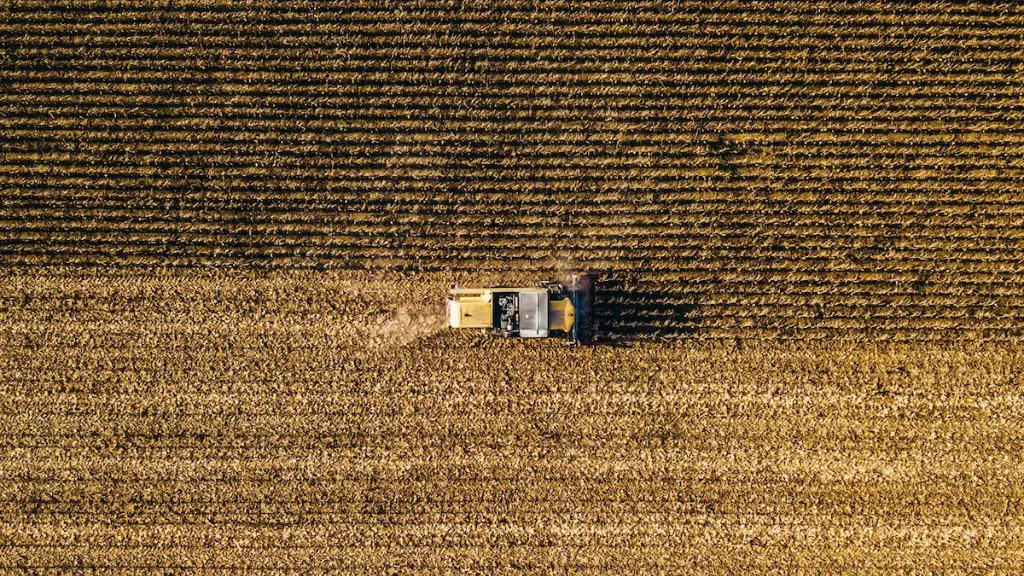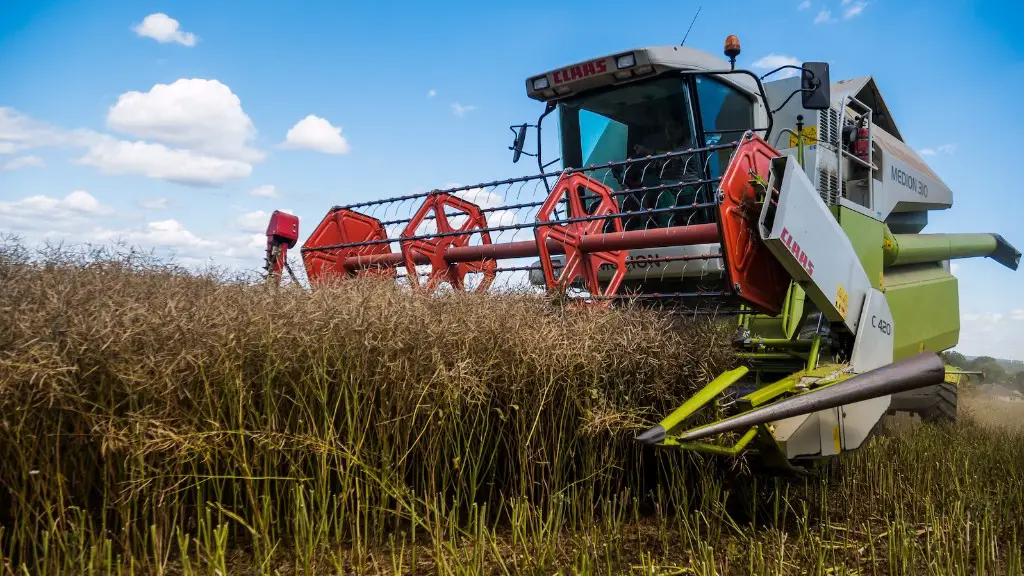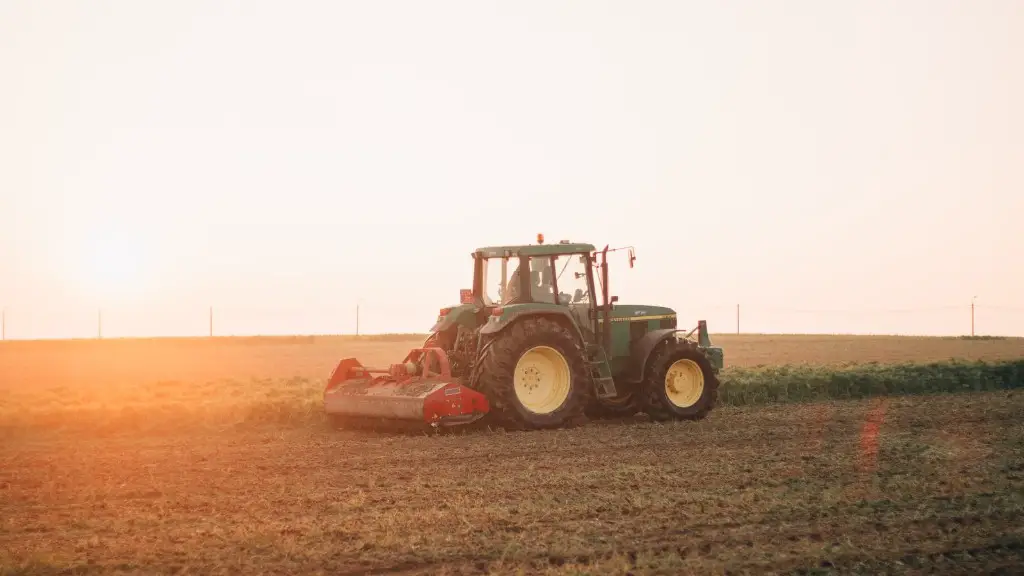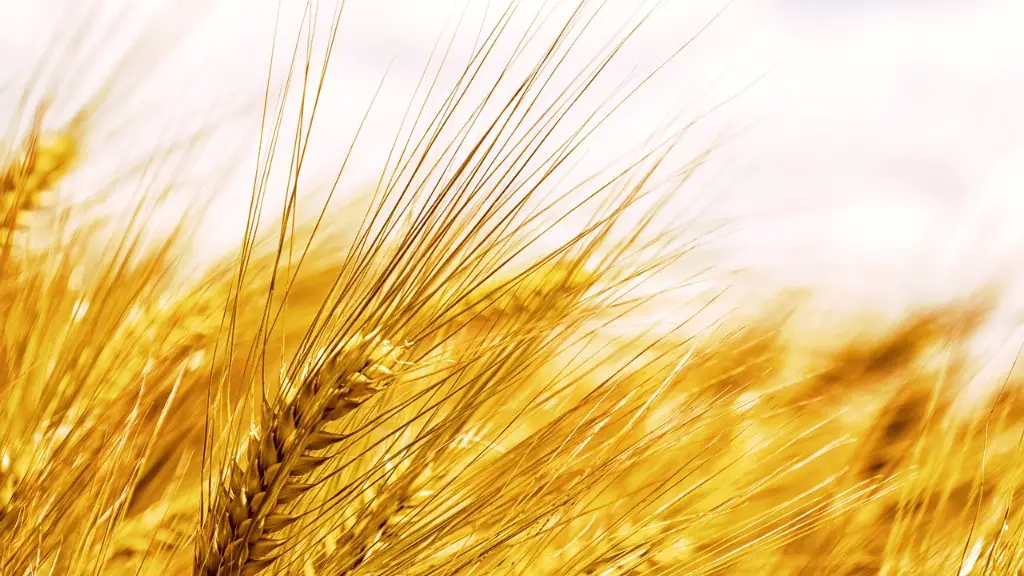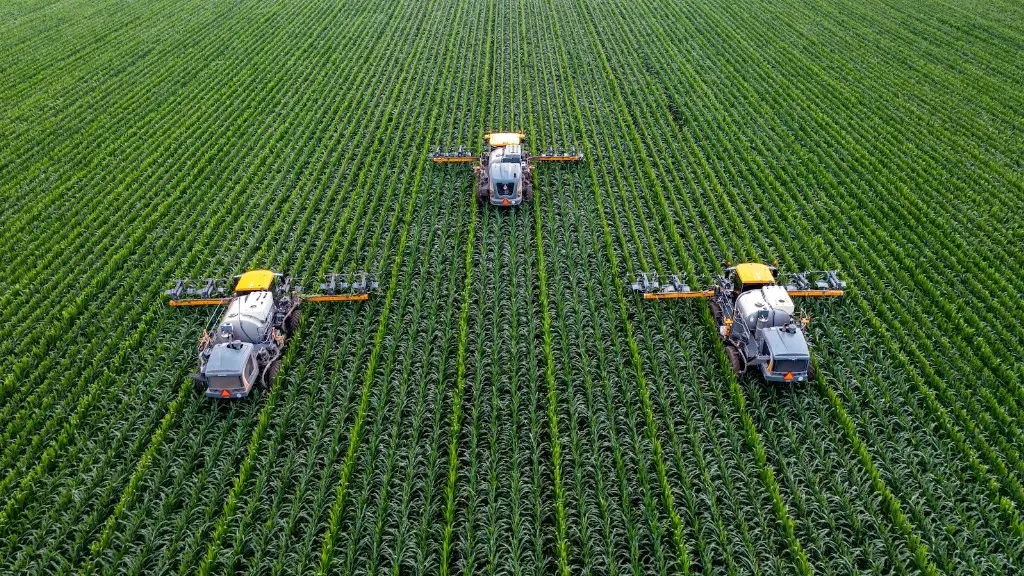Yes, salt water can be used for agriculture. There are a few ways to do this, but the most common is to desalinate the water. This is usually done by reverse osmosis, which forces the water through a membrane that only lets the fresh water through. The salt water is then returned to the ocean.
No, salt water cannot be used for agriculture. Salt water is not suitable for growing crops because it is too salty and it would damage the crops.
Can you use ocean water for agriculture?
Crop tolerance to seawater is a very important trait for crops that are grown in coastal areas. Seawater is a very harsh environment for plants, and it is important that crops can withstand the high salinity in order to grow and produce a good yield. There are a number of crops that can grow on seawater, and demonstration farms have shown that it is possible to produce a good crop yield using seawater for irrigation.
Seawater farming is a type of agriculture that uses seawater to irrigate crops and plants, especially in arid and semi-arid areas. Seawater farming addresses the severe lack of freshwater and undesirable soil conditions for agricultural activities in coastal regions. Seawater farming can be used to produce a variety of crops and plants, including fruits, vegetables, grains, and spices.
What crops can be watered with salt water
The researchers found that certain varieties of potatoes, cabbage, tomatoes, carrots, beetroots and strawberries have high salt tolerance. Brackish water was also found to be suitable for irrigating oats, barley, onions and sugar beet.
If you live in an area with high concentrations of salt in the soil, it’s important to take measures to protect your plants. Excess salt can damage plant roots and make it difficult for them to take up water and nutrients. Avoid using salt water to water your plants, and be careful not to over-fertilize or use de-icing salts on your driveway or sidewalk, as these can run off into the soil and injure your plants.
Which water is not suitable for agriculture?
The ocean contains a lot of salt, which makes it unfit for agricultural purposes. However, seawater can be used for agriculture if it is desalinated. Desalination is the process of removing salt from water, and it can be done using a variety of methods.
Adding ocean water to your garden can help improve conditions for growing plants. The oxygen in the ocean water helps to enrich the land and renew its mineral richness. The alkaline pH of the ocean water can also help to improve conditions for growing plants. Adding ocean water to your garden helps to boost the amount of life and beneficial microbe activity within the soil.
Does salt water ruin soil?
Salt water can damage plants by creating a chemical drought where water in roots can diffuse out into the saltier soil. This can be especially damaging if it happens during a time when the plant is already struggling to get enough water.
Seawater rice is a new type of rice that has been developed to be more resistant to saline and alkali conditions. This rice is grown in salty soil near the sea, and the special strains of rice have been created by over-expressing a gene from selected wild rice. This makes the new seawater rice more resistant to the harsh conditions found near the sea, and it is hoped that this rice will be able to help farmers in coastal areas to produce a better crop.
Can salt water be used as fertilizer
Did you know that ocean water is perfect fertilizer? Most people think seawater kills plants Right out of the ocean it does, just like any other fertilizer that is not diluted properly; but delivered in the proper concentration seawater is actually an amazing fertilizer.
Seawater is naturally very high in nutrients, which is why marine plants and algae can grow so prolifically in the ocean. When used as a fertilizer on land, these same nutrients can help to support healthy plant growth.
While ocean water can be used as is, it is typically diluted before being applied to plants. This is because the high concentration of salt can be damaging to plants if they are not used to it. When diluted, however, seawater provides an ideal mix of nutrients and moisture to plants, helping them to thrive.
Salt stress is a major problem for crops, as it can reduce a seed’s ability to absorb water and cause an ion imbalance. This can ultimately inhibit germination and prevent crop production. Therefore, growing standard crops in the face of SWI can risk crop failure.
Can you water grass with salt water?
While it is not recommended to irrigate with seawater, a few golf courses are forced to use brackish water for the golf course. This allows the construction of courses in places where fresh water may not be available either physically or politically. The salinity of the water can damage the turfgrass and other plant life on the course, and the water can also contain pollutants that can be harmful to people and the environment.
There are a few vegetables that have low salt tolerance, including beans, celery, cucumbers and radishes. This means that they may not be able to grow as well in soil that has a high salt content. If you are gardening in an area with high salt content in the soil, you may need to take special care of these vegetables.
What happens if you water plants with salt water
Sodium and chloride ions can cause problems for plants when they are present in high concentrations in the soil. The ions can displace other mineral nutrients that the plants need, such as potassium and phosphorus. This can lead to deficiencies in the plants.
Though it may seem like a good idea to water plants with salt water, it can actually be detrimental to their health. This is because when plants use osmosis to absorb water from the soil, the water is too dense for them to absorb when salt is present. This can cause the plant to dehydrate and even die.
Is salty water good for irrigation?
Extremely high salinity levels in irrigation water can quickly lead to accumulation of salts in the soils, which can reduce crop yields and even kill plants. Therefore, care must be taken to select crops that are tolerant of high salt levels, and to choose irrigation systems and practices that minimize salt buildup in the soils.
As a result of the many different sources that irrigation water can come from, it is critical that farmers protect their agricultural water source to minimize the potential for contamination. There are many ways that water can become contaminated, so farmers must be vigilant in order to maintain a safe and reliable water source.
What water is used for agriculture
In order to ensure a reliable water supply for irrigated agriculture, it is important to manage both surface water and groundwater resources responsibly. Excessive withdrawals of either water source can lead to unsustainable levels of water use and decreased water availability for agricultural production. Proper management of both surface water and groundwater resources is essential to sustaining irrigated agriculture in the long term.
Different countries have different policies and regulations regarding the use of irrigation water. In many cases, irrigation water is considered a public good, and its use is regulated by the state. In other cases, irrigation water is considered a private good, and its use is regulated by private entities.
The type of irrigation water used depends on a number of factors, including the climate, the type of crop being cultivated, the availability of water, and the cost of water. In some cases, a combination of different types of irrigation water is used.
The use of irrigation water can have a significant impact on the environment. Irrigation can lead to water pollution, as well as to the depletion of groundwater resources.
The efficient use of irrigation water is essential to ensuring the sustainability of agriculture. A variety of irrigation methods and technologies are available to help farmers use water more efficiently.
Warp Up
Salt water cannot be used for agriculture as it is unable to support plant life. Plants require fresh water to grow, and salt water would eventually kill them.
Yes, salt water can be used for agriculture in certain circumstances. For example, when there is a lack of freshwater resources, agriculture can be supplemented with salt water. Additionally, salt water can be used to irrigate land that is salt-tolerant, such as mangrove forests. In general, however, using salt water for agriculture is challenging due to the high salinity levels, which can limit plant growth.
